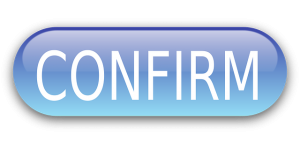How to Write Content on a Website?
There is one common mistake that just about every newbie makes when they try to write website articles. That mistake is not understanding who is viewing their websites. Most new marketers write content websites articles for people who would enjoy reading a nice book. The purpose of this writing is to provide a few tips that will show newbies how to write content on a website.
Visitors come to a website for a purpose. They are looking for certain information or specific products and they may very quick decisions; sometimes without thinking. Web surfers usually do not read word for word. Instead they scan the content, but not actually read it. That is, unless something really catches their eye. These web content writing tips can do just that!
Web content writing is a lot different from writing an essay or a paper. It can be very hard to persuade visitors to take a specific action if they don’t really read the pages. But, it can be done! You can turn your site into the best article writing website.

What Your Audience Will Consider
Remember that web surfers will usually consider two things. First, does the website offer what they are searching for? Secondly, can they find it quickly? A web surfer will usually make a decision very quickly whether the site is helpful or not. They will make that decision after only a quick glance.
Because a web visitor will only quickly glance at the site to determine if it is useful, the writer should put the most relevant information first. The most important information to the visitor is generally a straightforward, brief statement about what you do. If they can understand what you do then they may want to know a little more.
This method of writing is what most journalists use. It is referred to as the inverted pyramid. The most important information comes before any details or background information. Give the visitors what they want to know. That is, what you do or more importantly, what you can do for them. Short, brief statements work the best because web visitors don’t have time to think about anything but what they are searching for.
A Tip from Mr. Krug
Steve Krug, author of Don’t Make Me think! A Common Sense Approach to Web Usability said,
“What most web visitors do is glance at each new page, scan some of the text, and click on the first link that catches their interest or vaguely resembles the thing they’re looking for.”
“When I look at a Web page it should be self-evident. Obvious. Self-explanatory.”
To Write for Scanners
• The headline has got to communicate what you are about.
• Use sub-headlines to summarize key points.
• Make sure that the caption to the image reveals a sales message.
• Cut down on being too wordy by using bullet points.
Learn to use familiar words. No need to show how educated you are. Gerry McGovern said,
“As Web readers, we are hunter-gatherers once again – only this time, instead of scanning the horizon for prey, we scan pages for care words. When we see these words, we click, we act.”
Care words are the words that people are looking for. Too many times we try to sound intellectual with the big words, but the web surfers are looking for words that are familiar. Those care words are what signals to the visitors that they are in the right place. Basically the care words are the words visitors searched with.
Engage Your Audience
Engaging your audience will keep them on your website longer and will allow them to begin to build a rapport that will establish trust with you. The secret is to learn how to engage your visitors using great content. To help you engage with your audience here are a few suggestions that will work.
- Create a great introduction.
- Provide content that sparks a slew of comments
- Use the inverted pyramid style as I mentioned earlier.
- Prompt visitors to ask questions.
Chunk it Out
Many people feel that content writing is overwhelming, but if your break writing down into smaller chunks it will be a lot easier and less stressful.
Create an outline of what your content ideas so writing will be more manageable.
- Make a list of your main content topic ideas.
- Narrows down your main topics by creating sub-topic ideas for each of your main topics.
- For each sub-topic make a bullet list of the information you want to discuss.
- Create strong headlines that will spark interest and invites visitors.
- Write content that will show your audience how to apply the information you gave.
- Write content that is valuable and relevant to your audience.

Organization of Content
If your content is relevant and valuable to your audience they will stay on your website for longer periods of time as well as return to your site again and again. Your content should be:
- Easy to scan.
- Clarify to visitors where they are and what your site is about.
- Each page should have a call to action that instructs visitors where to go next.
- Each content page should discuss only one main topic idea.
- Include links to relevant pages within your own website.
- If possible convert paragraphs into bullet points (Note: I do not recommend making a page that is made up of only bullet points and or lists).
- Write as if you are talking directly to your visitors.
- Do not stray from the topic.
Because visitors are scanners, it is important to put the most important information first, above the fold (above the fold online generally means what can be seen on screen at the beginning of the article).
Confirm the Facts
Writing great content that is accurate is a reflection of what your website entails. It is essential to verify any statistics you include on your website. Accuracy builds trust with your audience and any potential customers. Inaccurate information impacts how people will view your content and your products. Consider the following items to assist you in keeping a high level of accuracy for your website.
- Think about whom you link your website content with.
- Be accurate in the information you provide and also with your sourcing information.

Check and Re-Check
Whenever I come across a website that is full of misspelled words or incorrect use of grammar, I immediately bounce! If the author doesn’t care enough to make sure the article is well written and free of mistakes, I don’t care enough to stay and waste my time.
Nothing is more unprofessional than creating a website that is riddled with grammatical and spelling errors. There really is no excuse for it. There are many free tools that can be obtained to ensure that your content is free of misspellings and incorrect grammar.
Having error free content is totally within your control. If you choose not ensure you have good copy it will reflect negatively upon your brand and your business. Poorly written content could prevent you from getting back links to your site and you will not gain the trust of your audience.
So, check and re-check your content to ensure it is free of all grammatical and spelling errors before you publish an article.
Conclusion
Learning how to write content on a website can be a challenging experience, particularly when you are not accustomed to doing a lot of writing. Content writing may be the number one cause for many people giving up on having an online business.
To streamline the writing process, it is important to ensure that the content is relevant to your users so as to promote return visits to your website. Most important, is that your content should help your visitors by answering the questions they are looking for or providing a solution to a problem they have. To do this, you must know who your target audience is and what they are searching for.

Call to Action
Since you’re already here, take a moment to look at another article that gives you more insight about writing for your target audience.
I would love to hear about your personal experience with creating content for your website. How easy was it for you? What are some of the things that you struggle with when writing?
Please feel free to contact me if you need help with anything. Just make a comment below or you can always get in touch with me through wealthyaffiliate.com (here is a link to my profile).
Cheers,
Verna
Founder of Your Trusted Affiliate
momstrustedaffiliate.com
email: verna@momstrustedaffiliate.com
